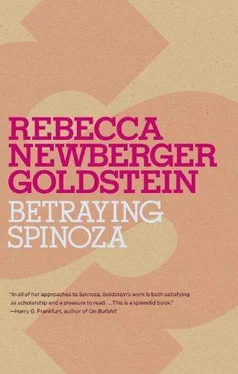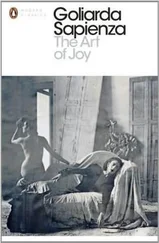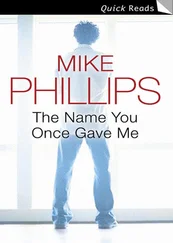Rebecca Goldstein - Betraying Spinoza - The Renegade Jew Who Gave Us Modernity
Здесь есть возможность читать онлайн «Rebecca Goldstein - Betraying Spinoza - The Renegade Jew Who Gave Us Modernity» весь текст электронной книги совершенно бесплатно (целиком полную версию без сокращений). В некоторых случаях можно слушать аудио, скачать через торрент в формате fb2 и присутствует краткое содержание. Год выпуска: 2009, ISBN: 2009, Издательство: Random House, Inc., Жанр: Биографии и Мемуары, на английском языке. Описание произведения, (предисловие) а так же отзывы посетителей доступны на портале библиотеки ЛибКат.
- Название:Betraying Spinoza: The Renegade Jew Who Gave Us Modernity
- Автор:
- Издательство:Random House, Inc.
- Жанр:
- Год:2009
- ISBN:978-0-80524273-7
- Рейтинг книги:5 / 5. Голосов: 1
-
Избранное:Добавить в избранное
- Отзывы:
-
Ваша оценка:
- 100
- 1
- 2
- 3
- 4
- 5
Betraying Spinoza: The Renegade Jew Who Gave Us Modernity: краткое содержание, описание и аннотация
Предлагаем к чтению аннотацию, описание, краткое содержание или предисловие (зависит от того, что написал сам автор книги «Betraying Spinoza: The Renegade Jew Who Gave Us Modernity»). Если вы не нашли необходимую информацию о книге — напишите в комментариях, мы постараемся отыскать её.
Betraying Spinoza: The Renegade Jew Who Gave Us Modernity — читать онлайн бесплатно полную книгу (весь текст) целиком
Ниже представлен текст книги, разбитый по страницам. Система сохранения места последней прочитанной страницы, позволяет с удобством читать онлайн бесплатно книгу «Betraying Spinoza: The Renegade Jew Who Gave Us Modernity», без необходимости каждый раз заново искать на чём Вы остановились. Поставьте закладку, и сможете в любой момент перейти на страницу, на которой закончили чтение.
Интервал:
Закладка:
The Espinozas, the philosopher’s family, had been Marranos, those who, even though they had been forced by the Church to convert to Christianity, still continued to practice Judaism in secret, hiding their observance of the Torah from the cruel edicts of the Spanish-Portuguese Inquisition. The slightest suspicion that they still obeyed the Torah — that they remembered the Shabbos and kept it holy, that they would not eat pig — and they would have been subjected to brutal torture and horrible death. In Spanish, auto-da-fé means “act of faith.” What it really meant was the mass trial of those accused of being secret Jews, and then the mass burning to death of all those who were condemned.
And still, as you well know, girls, many of you, from the examples of your own families, not even this terror was able to extinguish the spark of Yiddishkeit from their souls. Look at what your own families went through under Hitler, and yet one of the first things that concerned them when they got to this country was to make sure that the next generation — your generation, girls — would still learn To-rah. They never lost their faith.
And that was how it was for Spinoza’s family. After generations of their dangerous secret Jewish allegiance, his family, like many others before them and after, managed to make their way to the Dutch city of Amsterdam, where a community of Portuguese-Jewish exiles was thriving as it could in few other European cities of that day.
Amsterdam was the most tolerant city in all of Europe. But don’t think that it was as free as what you girls have come to take for granted here. Don’t make the mistake of thinking that it was as tolerant as New York City in 1967.
Baruch Spinoza had reaped the benefits of the long years of danger and suffering that his family had endured. He had been born into blessed circumstances, had been educated at the yeshiva the community of Portuguese refugees had organized almost as soon as they got to their new shores. It was, by all accounts, an excellent school. Rabbis from other parts of Europe who visited the Talmud Torah of Amsterdam marveled at the level of learning attained there. Baruch had studied under worthy rabbis, including the chief rabbi of Amsterdam, Rabbi Morteira, and he had distinguished himself. He was a brilliant student, a boy born with blessings. His very name, of course, means “blessed” in the holy tongue.
Yet this misguided young man, my teacher continued, ascending toward the climax, who might have used his superior mind to increase our knowledge of the Torah, had died with the pagan name of Benedictus, excommunicated and cursed by his own people, condemned and reviled as a dangerous heretic even by believing Christians. Let the history of the philosopher Spinoza serve as a warning to you, girls, against the dangers of asking the wrong questions.
In my teacher’s telling, this Baruch Spinoza might have been one of the no-goodnik boys attending one of the several yeshivas in the neighborhood, the Lower East Side of Manhattan, where Mrs. Schoenfeld taught at an all-girls yeshiva high school. There was only one such girls’ school in the neighborhood, but there were several boys’ schools, anachronistic reminders of the once teeming Jewish immigrant neighborhood that was largely dismantled by then. I had a long commute to it from a suburb out in Westchester, where my father served as the community’s cantor.
It was an extremely Orthodox school, the sort that had to be single-sex, since its outlook included the dictum that there be no mixing of girls and boys until it was time to think of marriage, and then the necessary encounters would be carefully supervised. And yet, despite the many oughts and ought-not s drilled into us, some among us still managed to achieve waywardness. There were girls who were not as pious as they might have been. There was a certain kosher pizza shop on East Broadway that was favored by certain girls from my school, the kind who rolled their skirts of regulation length (down at least to the calf) up above their knees as soon as they were out of the sight of our teachers. These girls would go to the infamous pizza shop for the purpose of flirting with “bumulkes,” as my father used to call them, bums with yarmulkes, yeshiva boys who were out on the streets or in pizza shops, up to no good, when they ought to have been in the beit midrash , the house of study, bent over their Talmudic tomes from morning until night.
Mrs. Schoenfeld’s discussion of Baruch Spinoza suggested that she had seen his type before, and so, she feared, had we. A boy who thinks he knows better than his rabbis and the Torah, who flaunts the Law and flirts with girls. Baruch Spinoza, a bumulke.
Mrs. Schoenfeld was a serious woman of middle age. At least I remember her as middle-aged. I was of an age when middle age might have meant late twenties. She wore matronly suits with calf-length skirts, and her prim head was topped by both an unbecoming wig and an unbecoming felt hat, a double precaution against committing the sin of a married woman’s hair being seen in public. (Actually, the double precaution is taken so that nobody fooled by the verisimilitude of her wig, might mistakenly think a married woman’s hair is uncovered. From what I remember of Mrs. Schoenfeld’s wig, there was little reason for the hat.) Mrs. Schoenfeld’s students were not yet married (though many of us, including me, would become engaged in our senior year of high school), and so our hair, unlike our teacher’s, was still exposed in all its maidenly glory. Otherwise, we were dressed not unlike her, in skirts that modestly hid most of our legs and blouses with cuffs that nestled our wrists, even though the scandalous sixties were raging all around us. The psychedelic swirl of Washington Square Park was no more than a twenty-minute walk from the door of our little school world, and sometimes I walked through this foreign land to watch the blissful braless girls and long-haired boys, forever at play.
Mrs. Schoenfeld taught various of the limudei kodesh , or sacred subjects, at the school, but this was the first time I’d ever had her as a teacher. The subject she was teaching was historia , or Jewish history. I had high expectations for this class, and for this teacher. I was encouraged not only by the seriously unattractive black glasses perched on her nose, but also by her English accent, so different from the nasal singsongese that prevailed in the school. I liked the cool, crisp tones of her voice, admired the way she used the English language, distinguishing between “who” and “whom,” using the occasional polysyllabic word that sent me to the dictionary.
And I liked the subject, too, at least that year, which was devoted to the modern European period. This was exciting for me. Not only did I have a teacher who appeared to be smart, but I was finally learning some historia that seemed more like “regular” history, less like the other le-mudai kodesh subjects that I had already come to doubt counted as genuine knowledge at all, which was a dispiriting thought, given the high percentage of my student life that was taken up by them. I felt the doubt as a sensation in my chest, gnawing away like some sharp-toothed rodent.
I had an urgency in me to become knowledgeable. I had stared into the hideous face of my ignorance and confusion and grown sick at the sight. I wasn’t at all certain that the large portion of each school day that was devoted to holy scholarship was redressing my lack of knowledge in the least. Mrs. Schoenfeld’s class seemed the one exception offered to me that year.
Ever since I could remember, historia had gotten no further than the Roman destruction of the Second Temple in Jerusalem, in 7 °C.E. Jewish history that was so remote had felt to me continuous with khumash and navi , the Five Books of Moses and the books of the prophets. This impression was underscored not only by historia ’s being taught in the mornings, together with all the other religious subjects, but also taught in Hebrew, while our secular subjects were taught in English, mostly by moonlighting public school teachers.
Читать дальшеИнтервал:
Закладка:
Похожие книги на «Betraying Spinoza: The Renegade Jew Who Gave Us Modernity»
Представляем Вашему вниманию похожие книги на «Betraying Spinoza: The Renegade Jew Who Gave Us Modernity» списком для выбора. Мы отобрали схожую по названию и смыслу литературу в надежде предоставить читателям больше вариантов отыскать новые, интересные, ещё непрочитанные произведения.
Обсуждение, отзывы о книге «Betraying Spinoza: The Renegade Jew Who Gave Us Modernity» и просто собственные мнения читателей. Оставьте ваши комментарии, напишите, что Вы думаете о произведении, его смысле или главных героях. Укажите что конкретно понравилось, а что нет, и почему Вы так считаете.












